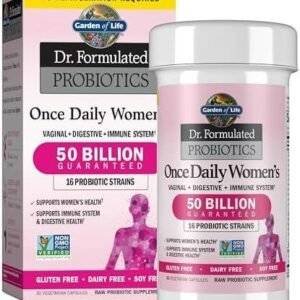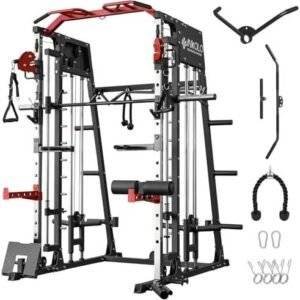In the relentless pursuit of athletic excellence, the significance of post-workout recovery cannot be overstated. As both amateur and professional athletes continue to push their physical limits, the focus has increasingly shifted towards optimizing recovery processes to enhance performance and prevent injury. Central to this discussion is the role of post-workout supplements, which promise to fortify the body’s recovery mechanisms following intense exercise. This article conducts a comprehensive analysis of the top post-workout supplements available on the market today, evaluating their efficacy, the scientific principles underpinning their ingredients, and their impact on recovery outcomes. By dissecting the various formulations and their claims, we aim to provide athletes and fitness enthusiasts with a well-informed perspective, enabling them to make educated choices about their recovery strategies. Ultimately, the goal is to enhance understanding of how these supplements can contribute to optimal recovery, ensuring that each workout builds not only strength but also resilience.
Table of Contents
- Understanding Nutritional Requirements for Post-Workout Recovery
- Evaluating Key Ingredients in Leading Post-Workout Supplements
- Comparative Analysis of Supplement Formulations and Effectiveness
- Recommendations for Tailoring Supplement Choices to Individual Goals
- To Wrap It Up
Understanding Nutritional Requirements for Post-Workout Recovery
After an intense workout, the body enters a recovery phase that requires specific nutrients to repair muscle tissue, replenish energy stores, and promote overall healing. Proteins play a critical role in muscle repair, and should ideally be consumed within 30 minutes post-exercise. Aim for a source that provides essential amino acids, particularly leucine, which stimulates muscle protein synthesis. Alongside protein, carbohydrates are essential to replenish glycogen stores that have been depleted during your workout. A combination of both macronutrients will optimize recovery and prepare your body for your next session.
In addition to proteins and carbohydrates, hydration cannot be overlooked. Electrolyte balance is crucial, especially after prolonged or high-intensity exercise. A well-formulated post-workout supplement should also include vitamins and minerals that support recovery processes, such as magnesium and zinc. Consider the following key components when evaluating post-workout supplements:
| Component | Function | Examples |
|---|---|---|
| Protein | Repairs muscle tissue | Whey, casein, plant-based proteins |
| Carbohydrates | Replenishes glycogen | Glucose, maltodextrin, fructose |
| Electrolytes | Maintains fluid balance | Sodium, potassium, magnesium |
| Vitamins & Minerals | Supports metabolic processes | Zinc, B vitamins, Vitamin C |
By focusing on these nutritional requirements and choosing a post-workout supplement that meets them, you can effectively enhance your recovery and improve overall performance in future workouts.
Evaluating Key Ingredients in Leading Post-Workout Supplements
The efficacy of post-workout supplements largely hinges on their key ingredients, which are meticulously selected to optimize muscle recovery and enhance overall performance. Among the most prominent components, branched-chain amino acids (BCAAs) stand out for their ability to reduce muscle soreness and stimulate protein synthesis. Additionally, creatine supports increased strength and muscle mass, making it a staple in many post-workout formulations. Glutamine plays a pivotal role by aiding in muscle recovery and supporting immune function, vital for athletes undergoing rigorous training.
A critical aspect to consider when evaluating these supplements is the balance and quality of ingredients used. Premium products often incorporate a synergistic blend that maximizes benefits. For instance, a combination of protein isolates and electrolytes not only replenishes the body’s nutrients but also aids in hydration post-exercise. The table below provides a snapshot of common ingredients found in leading post-workout supplements and their primary functions:
| Ingredient | Function |
|---|---|
| BCAAs | Reduce muscle soreness |
| Creatine | Enhance strength |
| Glutamine | Support recovery |
| Protein Isolate | Muscle repair |
| Electrolytes | Hydration |
Comparative Analysis of Supplement Formulations and Effectiveness
In the pursuit of optimal recovery post-workout, the variety of supplement formulations available can significantly impact effectiveness. Key ingredients often found in these supplements include:
- Protein: Essential for muscle repair and growth, with options ranging from whey to plant-based proteins.
- Branched-chain amino acids (BCAAs): Help reduce muscle soreness and fatigue, facilitating faster recovery.
- Creatine: Enhances strength and muscle performance, contributing to a more effective recovery process.
- Electrolytes: Crucial for fluid balance, especially after intense workouts that lead to significant hydration loss.
A comparative analysis of these formulations reveals noteworthy differences in efficacy. For instance, a study highlighted in the table below shows how specific ingredients impact recovery time and muscle soreness:
| Supplement Type | Recovery Time (hrs) | Muscle Soreness (Rating 1-10) |
|---|---|---|
| Whey Protein | 24 | 3 |
| BCAAs | 18 | 4 |
| Creatine | 20 | 5 |
| Electrolyte Blend | 22 | 4 |
This data underscores the importance of not only the type of supplementation but also how combined ingredients can enhance overall effectiveness. For example, a formulation rich in both protein and BCAAs may offer superior recovery benefits, as indicated by the reduced recovery time and lower muscle soreness ratings. Therefore, consumers must consider these factors when selecting post-workout supplements to ensure maximum benefit.
Recommendations for Tailoring Supplement Choices to Individual Goals
Selecting the right post-workout supplements requires a thoughtful approach, especially as individual fitness objectives can significantly shape nutritional needs. For athletes focused on muscle gain, prioritizing protein-rich supplements such as whey or casein protein can increase muscle protein synthesis and facilitate recovery. On the other hand, endurance athletes may benefit from supplements that provide carbohydrates and electrolytes, aiding in glycogen replenishment and hydration, essential for sustaining prolonged physical exertion. It’s crucial to assess personal activity levels, dietary restrictions, and the specific demands of one’s workout regimen when making decisions.
Furthermore, some individuals might find that they require additional support from specific micronutrients or amino acids to enhance their recovery times. For instance, those engaged in high-intensity training could consider the inclusion of branched-chain amino acids (BCAAs), which are known to reduce muscle soreness and boost recovery. A practical way to comprehend these options is by utilizing a comparison table that highlights various supplements alongside targeted goals:
| Supplement | Goal | Recommended For |
|---|---|---|
| Whey Protein | Muscle Gain | Bodybuilders, Weight Lifters |
| Electrolyte Drinks | Hydration | Endurance Athletes |
| BCAAs | Recovery | High-Intensity Trainees |
| Carbohydrate Supplements | Energy Restoration | Marathon Runners, Cyclists |
To Wrap It Up
the landscape of post-workout supplements represents a critical intersection of science and athletic performance, where informed choices can substantially impact recovery and overall fitness outcomes. Through our analysis, we have unraveled the core ingredients that define the most effective products—each serving a unique role in muscle repair, the alleviation of soreness, and the enhancement of recovery time.
As athletes and fitness enthusiasts continue to prioritize recovery as a fundamental component of their training regimens, understanding the biochemical mechanisms behind these supplements is paramount. From branched-chain amino acids to creatine and anti-inflammatory compounds, the potential benefits are significant, provided they are approached with a discerning eye.
It is imperative for consumers to remain vigilant, however, as the supplement market is rife with unvalidated claims and products that do not stand up to scrutiny. Choosing scientifically-backed supplements that align with individual recovery needs and personal fitness goals will not only facilitate optimal recovery but also promote long-term athletic performance.
Ultimately, informed supplementation, alongside a balanced diet and proper rest, forms the bedrock of effective recovery and continuous improvement. As we advance our understanding of sports nutrition, the importance of rigorous analysis and personalized approaches cannot be overstated. As you embark on your journey toward enhanced recovery, remember that empowerment lies in knowledge; equip yourself with the insights gleaned from careful consideration of the best post-workout supplements available today.





